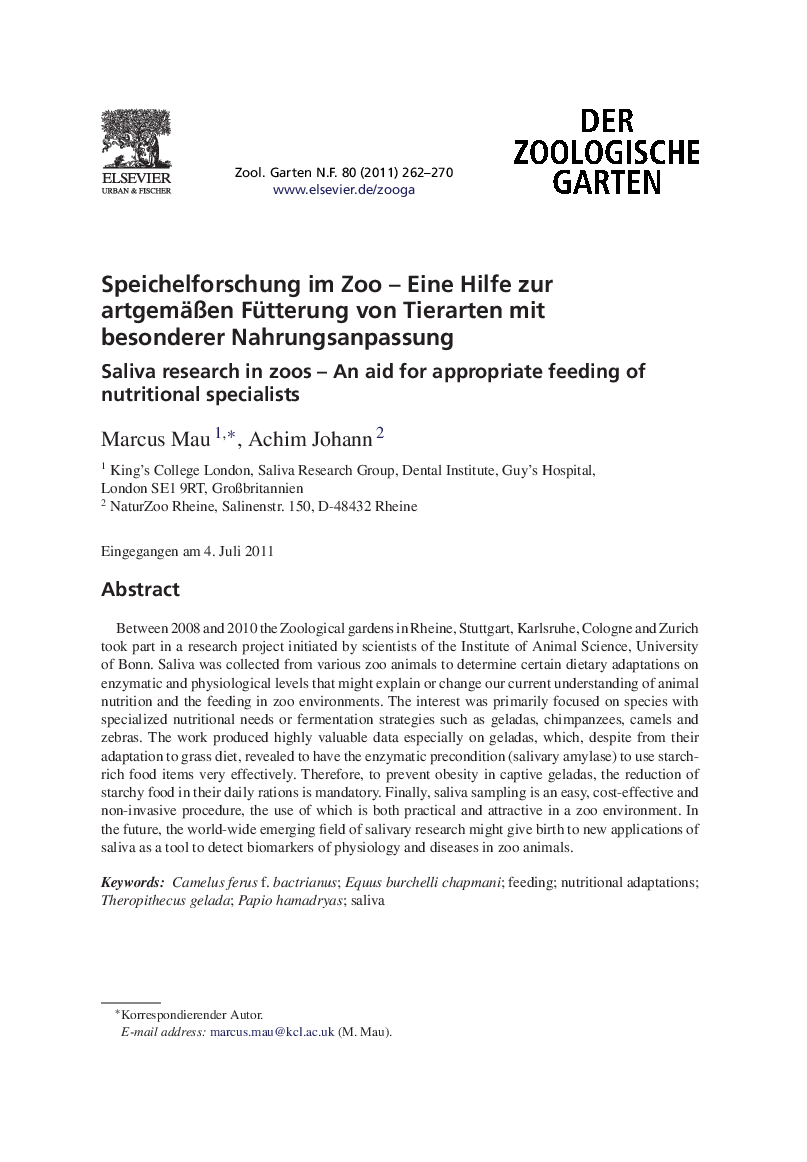| Article ID | Journal | Published Year | Pages | File Type |
|---|---|---|---|---|
| 2472961 | Der Zoologische Garten | 2011 | 9 Pages |
Between 2008 and 2010 the Zoological gardens in Rheine, Stuttgart, Karlsruhe, Cologne and Zurich took part in a research project initiated by scientists of the Institute of Animal Science, University of Bonn. Saliva was collected from various zoo animals to determine certain dietary adaptations on enzymatic and physiological levels that might explain or change our current understanding of animal nutrition and the feeding in zoo environments. The interest was primarily focused on species with specialized nutritional needs or fermentation strategies such as geladas, chimpanzees, camels and zebras. The work produced highly valuable data especially on geladas, which, despite from their adaptation to grass diet, revealed to have the enzymatic precondition (salivary amylase) to use starch-rich food items very effectively. Therefore, to prevent obesity in captive geladas, the reduction of starchy food in their daily rations is mandatory. Finally, saliva sampling is an easy, cost-effective and non-invasive procedure, the use of which is both practical and attractive in a zoo environment. In the future, the world-wide emerging field of salivary research might give birth to new applications of saliva as a tool to detect biomarkers of physiology and diseases in zoo animals.
